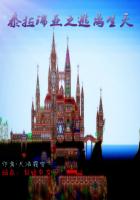Our desire to make the Greek choruses and the ancient tragic dance live again was surely a very worthy effort, and one of utter impracticability。 But, after the financial successes of Budapest and Berlin, I had no desire to make a world tour, and only used the money that I had earned to build a Greek Temple and revivify the Greek chorus。I look back now at our youthful aspirations as really curious phenomena。
And so we arrived one morning in Vienna and presented to a wondering Austrian public the choruses of The Suppliants of Aeschylus, intoned by our Greek boys on the stage, while I danced。 As there were fifty“daughters of Danaus,”I found it very difficult to express, in my slight figure, the emotions of fifty maidens all at once, but I had the feeling of multiple oneness, and did my best。
Vienna is only four hours from Budapest, but it is extra?ordinary, perhaps, that the year spent before the Parthenon had so separated me from Budapest that I did not find it at all strange that Romeo never travelled those four hours to come to see me。 Nor did I really think that he should have done so。I was so interested in the Greek chorus that my devotion to it took all my energy and emotions。To tell the truth, I never thought of him。On the contrary, my being at that time was taken up with intellectual questions, andall this was admirably concentrated in a friendship I then had with a man who was, above all, a man of intelligence—Herman Bahr。
Herman Bahr had seen me dance a couple of years before in the Vienna Künstler Haus before the artists。On my return to Vienna with the chorus of Greek boys he was intensely interested。He wrote marvellous Press criticisms in the Vienna Neue Presse。
Herman Bahr was at that time a man of perhaps thirty, with a magnificent head, covered with luxuriant brown hair and a brown beard。 Although he often came to the Bristol after the performance and talked to me till dawn, although I often rose and danced strophe after strophe of the Greek chorus to illustrate my meaning, nevertheless, between us was not the slightest hint of anything of a sentimental or emotional nature。Probably sceptics will find this hard to believe, but it is the very truth that from the experience of Budapest, for years after, my entire emotional reaction had such a revolution that I really believed I had finished with that phase, and in the future would only give myself to my Art。Now, considering that I was built rather on the lines of the Venus de Milo, this certainly was a bit astonishing, and so I regard it today。Strange as it may seem, after that brutal awakening my senses slept;nor did I desire of them anything at all。All my life centred in my Art。
My success in Vienna at the Karl Theatre was again achieved。 The audience, who began by receiving the chorus of The Suppliants with the ten Greek boys rather coldly, ended in a state of exalted enthusiasm when I danced the“Blue Danube”at the close of the performance。After the performance I made a speech explaining that it was not what I wanted;that I wished to give the spirit of Greek tragedy。We must revive the beauty of the chorus, I said。But still the audience shouted:“Nein。Mach nicht Tanze。Tanze die Sch ne Blaue Donau。Tanze noch einmal。”And they applauded over and over again。
So, laden with new gold, we left Vienna and again arrived in Munich。 The advent of my Greek chorus in Munich caused a great stir in professional and intellectual circles。The great Professor Furtwangler delivered a lecture, and discoursed on the Greek hymns now set to music by the Byzantine professor of the Greek Church。
The students of the University were much aufgeregt。 In fact, our beautiful Greek boys made a profound hit。Only I, dancing as the ffty Dana des, felt very inadequate, and often, as the performance ended, I made a speech to explain that I should really be, not myself, but fifty maidens;that I was furchtbahr traurig, that I was only one, but patience, Geduld, I should soon form a school and transform myself into fifty kleine M?dchen。
Berlin was less enthusiastic for our Greek chorus and, although a distinguished professor from Munich, Professor Cornelius, came to announce them, Berlin, like Vienna, cried,“Oh, dance the sch ne blaue Danube, and never mind the reconstruction of these Greek choruses。”
In the meantime the little Greek boys themselves werefeeling the effects of their unaccustomed environment。 I had received several complaints from our worthy hotel proprietor of their bad manners and the violence of their tempers。It seems that they asked continually for black bread, black ripe olives, and raw onions, and, when these condiments were not in their daily menu, they became enraged with the waiters—going so far as to throw beefsteaks at their beads and attack them with knives。After they had been turned out of several frst?class hotels, I was forced to ft up the front parlour rooms of my apartments in Berlin with ten cots, and install them with us。
As we considered them children, we used to solemnly take them all for a walk each morning in the Tiergarten, sandalled and accoutred as ancient Greeks。 Elizabeth and I, walking at the head of this strange procession one morning, met the Kaiserin on horseback。She was so shocked and astonished that, at the next turning, she fell of her horse, for the good Prussian horse had also never seen anything like this, so he shied and acted badly。
These charming Greek children only remained with us for six months。 Then we couldn't help noticing ourselves that their heavenly voices were becoming out of tune, and even the adoring public began to turn to one another in consternation。I bravely kept on trying to impersonate the fifty Danaides in supplication before the altar of Zeus, but it was a heavy task, especially when the Greek boys sang more than ordinarily false, and their Byzantine professor seemed more and more distracted。
The Seminarist grew more and more vague about Byzantine music。 He seemed to have left all his enthusiasm for it in Athens。Also his absences became more frequent and prolonged。The climax of all came when the police authorities informed us that our Greek boys were surreptitiously escaping from the window at night and, when we thought they were safely sleeping, they were frequenting cheap cafés and making the acquaintance of the lowest specimens of their compatriots which the city held。
Also, since they arrived in Berlin, they had completely lost that naive and heavenly boyish expression which they had had on the evenings in the Dionysus Theatre, and each had grown half a foot。 Every night at the theatre the chorus of The Suppliants was becoming more and more off any key whatever。One could no longer excuse it on the ground that it was Byzantine。It was simply a fearful bad noise。So one day, after much worried consultation, we came to the decision to march all our Greek chorus down to Wertheimer's big department store。We bought them all nice ready?made knickerbockers for the short boys and long trousers for the big boys, and then took them in taxis to the railroad station and, putting them all in second?class carriages, with a ticket for each to Athens, bade them a fond farewell。After their departure we put of the revival of ancient Greek music to a later date, and returned to the study of Christopher Gluck—Iphigenia and Orpheus。
From the beginning I conceived the dance as a chorus or community expression。 Just as I had endeavoured to pictureto the audience the sorrows of the daughters of Danaus, so I danced, from Iphigenia。the maidens of Chalcis playing with their golden ball on the suave sands, and later the sorrowful exiles at Tauris dancing with reluctant horror the blood sacrifces of their Hellenic countrymen and victims。I so ardently hoped to create an orchestra of dancers that, in my imagination, they already existed, and in the golden lights of the stage I saw the white supple forms of my companions:sinewy arms, tossing heads, vibrant bodies, swift limbs environed me。At the end of Iphigenia the maids of Tauris dance in bacchanalian joy for the rescue of Orestes。As I danced these delirious rondos, I felt their willing hands in mine;the pull and swing of their little bodies as the rondos grew faster and madder。When I finally fell, in a paroxysm of joyous abandon, I saw
Until they fell as with
“Drunken with wine, amid the sighing of futes
Hunting desire through woodland shades alone。”
The weekly receptions at our house in Victoria Strasse now became the centre of artistic and literary enthusiasm。 Here took place many learned discussions on the dance as a fine art;for the Germans take every art discussion most seriously and give the deepest consideration to it。My dance became a subject of violent and even fery debates。Whole columns constantly appeared in all the papers, sometimes hailing me as the genius of a newly discovered Art, sometimes denouncing me as a destroyer of the real classic dance, i。e。the ballet。On my return from performances where the audience had been delirious with joy, I would sit far into the night in my white tunic, with a glass of white milk beside me, poring over the pages of Kant's Critique of Pure Reason, from which, Heaven only knows how, I believed I was fnding inspiration for those movements of pure beauty which I sought。
Among the artists and writers who frequented our house was a young man with a high forehead, piercing eyes behind glasses, who decided it was his mission to reveal to me the genius of Nietzsche。 Only by Nietzsche, he said, will you come to the full revelation of dancing expression as you seek it。He came each afternoon and read me Zarathustra in German, explaining to me all the words and phrases that I could not understand。The seduction of Nietzsche's philosophy ravished my being, and those hours which Karl Federn devoted to me each day assumed a fascination so potent that it was with the greatest reluctance that my impresario could persuade me to make even short tours to Hamburg, Hanover, Leipsic, etc。,where excited, furious audiences and many thousand marks awaited my coming。I had no wish for the triumphal world tours of which he always talked to me。I wanted to study, continue my researches, create a dance and movements which then did not exist,
and the dream of my school, which had haunted all my childhood, became stronger and stronger。This desire to remain in my studio and study drove my impresario to absolutedespair。He continually bombarded me with entreaties to travel, and continually came in, wailing with anguish, showing me newspapers which told how, in London and elsewhere, copies of my curtains, my costumes, and my dances were being received, turned into certain success and hailed as original。But even this had no efect on me。His exasperation reached its climax when, as the summer approached, I declared my intention of spending the whole season in Bayreuth, to revel at last, from the real source, in the music of Richard Wagner。This decision was brought to a final determination when, one day, I received a visit from no less a person than the widow of Richard Wagner。
I have never met a woman who impressed me with such high intellectual fervour as Cosima Wagner, with her tall, stately carriage, her beautiful eyes, a nose perhaps too prominent for femininity, and a forehead which radiated intelligence。 She was versed in all the deepest philosophy, and knew every phrase and note of the master by heart。She spoke to me of my Art in the most encouraging and beautiful manner, and then she spoke to me of Richard Wagner's distate for the ballet school of dancing and costume;of his dream for the bacchanal and the flower maidens;of the impossibility of fitting into Wagner's dream the execution of the Berlin ballet actually engaged to perform at Bayreuth that season。She then asked me if I would consent to dance in the performances of Tannh?user, but there came the difficulty。With my ideals it was impossible for me to have anything to do with the ballet, whose every movement shocked my sense of beauty, and whose expression seemed to me mechanical and vulgar。
“Oh, why have I not the school of which I dream,”I exclaimed in response to her request;“then I could bring to you at Bayreuth a bevy of just those nymphs, fauns, satyrs, and Graces, of which Wagner dreamed。 But alone, what can I do?Nevertheless, I will come, and I will try to give at least an indication of the lovely, soft, voluptuous movements which I already see for the Three Graces。”















